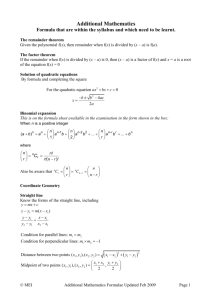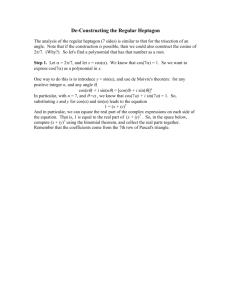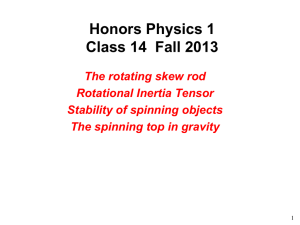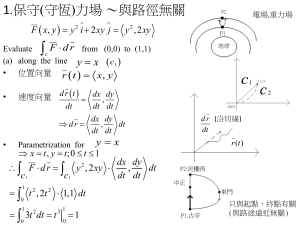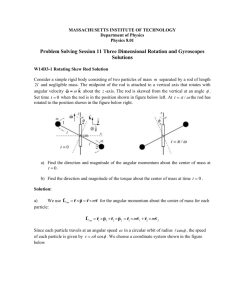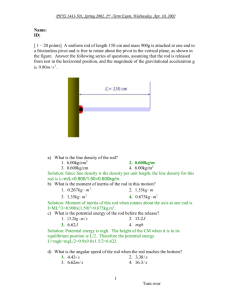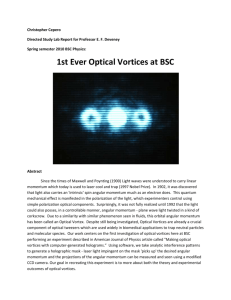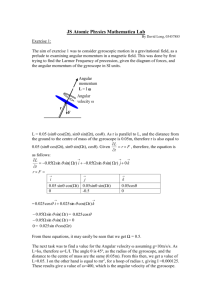W14D2-5 Angular Momentum of a Rotating Skew Rod
advertisement
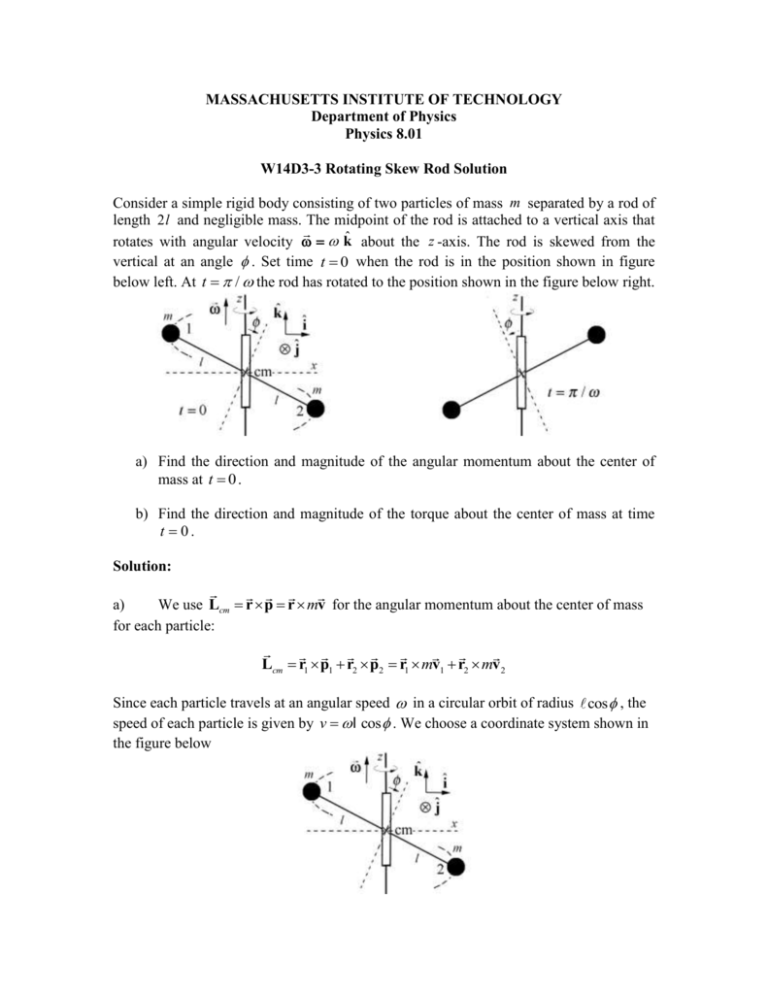
MASSACHUSETTS INSTITUTE OF TECHNOLOGY Department of Physics Physics 8.01 W14D3-3 Rotating Skew Rod Solution Consider a simple rigid body consisting of two particles of mass m separated by a rod of length 2l and negligible mass. The midpoint of the rod is attached to a vertical axis that rotates with angular velocity k̂ about the z -axis. The rod is skewed from the vertical at an angle . Set time t 0 when the rod is in the position shown in figure below left. At t / the rod has rotated to the position shown in the figure below right. a) Find the direction and magnitude of the angular momentum about the center of mass at t 0 . b) Find the direction and magnitude of the torque about the center of mass at time t 0. Solution: a) We use Lcm r p r mv for the angular momentum about the center of mass for each particle: Lcm r1 p1 r2 p2 r1 mv1 r2 mv2 Since each particle travels at an angular speed in a circular orbit of radius cos , the speed of each particle is given by v l cos . We choose a coordinate system shown in the figure below r r For particle 1: r1 l cos φ i l sin kφ and v1 l cos φ j . Thus r r r φ (ml cos φ L cm,1 r1 mv1 (l cos φ i l sin k) j) . After calculating the cross products, we have that the angular momentum about the center of mass for particle 1 is r L cm,1 ml 2 cos (cos kφ sin φ i) . Note that for particle 2, r2 r1 and v 2 v1 , so Lcm,2 r2 mv 2 r1 mv1 Lcm,1 . Thus the angular momentum about the center of mass at time t 0 is given by r Lcm (0) 2ml 2 cos(cos kφ sin φ i) . The magnitude of the angular momentum about the center of mass is given by Lcm 2ml 2 cos(cos2 sin2 ) 2ml 2 cos . b) At t 0 , the rod is rotating in the x y plane. The figure below shows the orientation of the rod as seen from above. The z -component of the angular momentum about the center of mass is constant and the x -component of the angular momentum about the center of mass is changing in time as the rod rotates and is given by r L cm, x (0) 2ml 2 cos sin φ i The time derivative of the angular momentum about the center of mass is perpendicular the angular momentum, points in the positive y -direction, and has a magnitude that is r equal to L cm,x (0) . Therefore r r dL cm (0) L cm,x (0) φ j 2ml 2 2 cos sin φ j. dt The torque about the center of mass is given by Therefore at t 0 , we that r dL cm r cm dt r cm 2ml 2 2 cos sin φ j.
